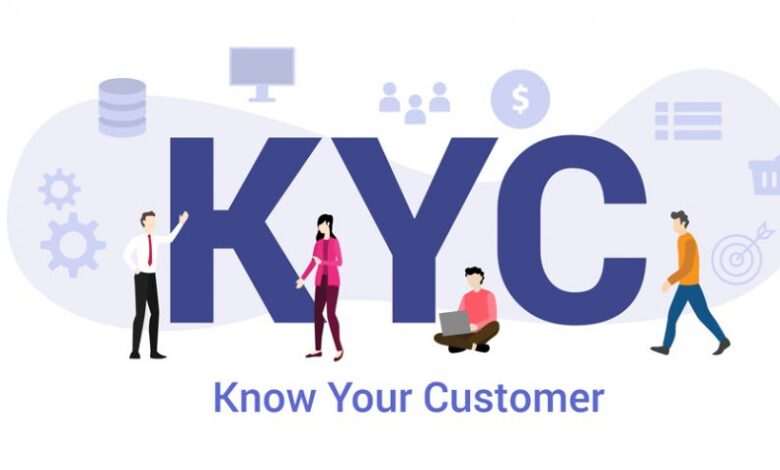On-Chain KYC: Balancing Privacy and Regulation

What is On-Chain KYC?
On-chain KYC is how one authenticates people’s identities using blockchain technology while still keeping things decentralized. Traditional KYC depends on central databases, while on-chain KYC makes use of smart contracts and secure digital tools to confirm who you are without the need to share personal details.
This system helps in storing on the blockchain confirmed information that any user can later prove to third parties that their rules are satisfied without necessarily releasing sensitive data across several parties to ensure privacy with minimal chances of data breaches yet still meeting needed regulations.
Why is KYC Necessary in Crypto?
Regulators enforce KYC to prevent illegal activities such as:
- Money laundering: Criminals use cryptocurrencies to move funds across borders without detection.
- Terrorist financing: Anonymity in crypto transactions can be exploited for illicit funding.
- Fraud prevention: KYC helps verify users, reducing scams and identity theft.
- Consumer protection: Ensures financial institutions operate with legitimate users only.
Despite these benefits, traditional KYC systems present challenges, including centralized data storage, privacy concerns, and high compliance costs.
How On-Chain KYC Works
On-chain KYC solutions integrate blockchain features to enhance security and privacy. The process generally includes:
- User Verification: A user submits identity documents to a trusted third party or decentralized identity provider.
- Issuance of a Verifiable Credential: Once verified, the provider issues a digital credential stored on the blockchain.
- Zero-Knowledge Proofs (ZKPs): Instead of revealing personal data, ZKPs allow users to prove compliance without disclosing sensitive details.
- Smart Contract Enforcement: Platforms can use smart contracts to verify credentials before allowing transactions or access.
- Revocation and Updates: Users can revoke or update credentials when needed, ensuring compliance with evolving regulations.
This system enables KYC compliance without compromising privacy, reducing risks associated with centralized data storage.
Advantages of On-Chain KYC
|
Feature |
Traditional KYC |
On-Chain KYC |
|
Data Storage |
Centralized |
Decentralized |
|
Privacy Protection |
Low |
High (ZKPs) |
|
Security Risks |
High (Data Breaches) |
Lower (Encryption) |
|
Compliance Costs |
High |
Reduced |
|
User Control |
Limited |
Enhanced |
- Enhanced Privacy: Users verify identity without exposing sensitive data.
- Improved Security: Reduces risk of data breaches and hacking.
- Lower Compliance Costs: Automation through smart contracts minimizes manual verification costs.
- User Control: Users manage their credentials without relying on centralized entities.
Challenges and Concerns
Despite its benefits, on-chain KYC faces several challenges:
- Regulatory Uncertainty: Many regulators still require access to personal data, making full privacy difficult.
- Adoption Barriers: Financial institutions may be slow to trust blockchain-based verification systems.
- Technology Limitations: ZKPs and smart contracts require advanced development and integration.
- Revocation Issues: If a user’s identity is compromised, revoking credentials can be complex.
- Interoperability: Different platforms may implement different KYC standards, causing compatibility issues.
Can Privacy and Regulation Coexist?
On-chain KYC would be workable only by striking a balance between the dichotomy of privacy and regulatory needs. Possible solutions include:
- Decentralized identity solutions: Include Self-Sovereign Identity-one that decentralizes personal data ownership to the user while ensuring compliance for KYC.
- Regulatory Sandboxes: Governments can work with crypto firms on the piloting and refinement of on-chain KYC frameworks.
- Selective Disclosure: Users can reveal only necessary details to regulators without exposing their full identity.
- Industry Standards: Establishing universal on-chain KYC protocols can improve adoption and compliance.
- Hybrid Models: Combining blockchain verification with traditional compliance mechanisms can satisfy both privacy advocates and regulators.
The Future of On-Chain KYC
It’s most likely that, with further and more advancements in blockchain, on-chain KYC is the future in crypto. Innovations involve the verification of identity using soulbound tokens and also decentralized identifiers for better privacy and security.
The challenge remains how to enforce this while preserving user autonomy. Ongoing developments in cryptography, smart contracts, and decentralized identity systems could make on-chain KYC the missing link between privacy and regulation.
On-chain KYC does present, nonetheless, a very promising alternative to traditional identity verification. Powered by blockchain, it enhances security, privacy, and efficiency in compliance. First, though, regulatory uncertainty and technological barriers have to be overcome. If done right, on-chain KYC can prove that regulation and privacy indeed can go hand-in-hand in crypto space.
https://www.coinbackyard.com/wp-content/uploads/2025/02/know-your-customer-kyc-810×476-1.jpg
2025-02-11 04:53:19




